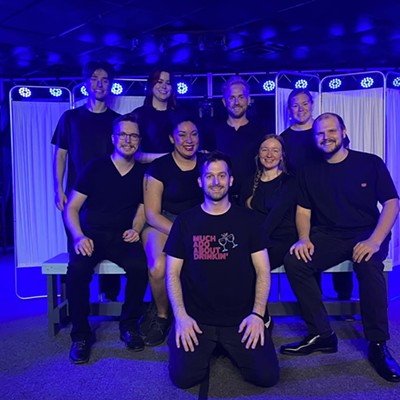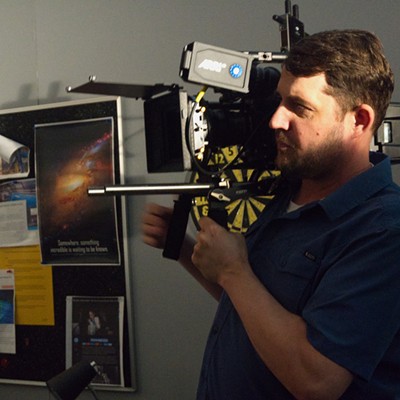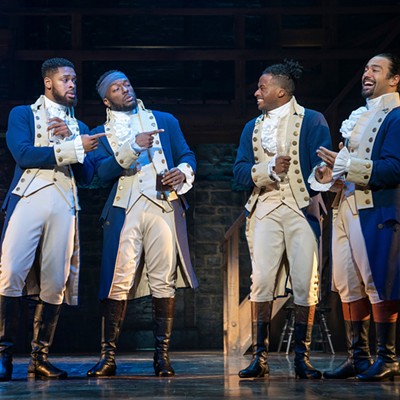The musical Wicked has flown into the Thelma Gaylord Performing Arts Theatre on brooms and bubbles, the preferred modes of travel for the show’s witches. The production huffs and puffs, but in the end, it’s no more than a colorful spectacle and emotional dud. Based on Gregory Maguire’s novel Wicked: The Life and Times of the Wicked Witch of the West, the show tells the characters’ story prior to L. Frank Baum’s version of the Wizard of Oz.
Here, Glinda, later the Good Witch, and Elphaba meet at Shiz University in the Land of Oz, where the former’s entrance essay was titled Magic Wands: Need They Have a Point?
Students ostracize Elphaba for her vivid green skin, while Glinda is Little Miss Perfect and knows it. But Glinda feels sorry for, befriends and tries to help her chartreuse-fleshed counterpart.
As you know, things go awry, and Elphaba becomes the Wicked Witch of the West. Early on, a character wonders whether people are born wicked or have wickedness thrust upon them. Elphaba wasn’t born wicked, and whether her peers thrust wickedness upon her is a discussion for sociologists and psychologists, but she is definitely menaced by bad luck. Among other sorcerous mishaps, she accidentally casts a spell that puts wings on monkeys.
By Stephen Schwartz (music, lyrics) and Winnie Holzman (book), Wicked has a serviceable, if largely forgettable, score and a script that nods to the film.
“There’s no place like home,” Elphaba says, returning to her home in Munchkinland, where the Munchkins are regular-sized people. A thin subplot involves Elphaba’s sister, Nessarose, who is killed when a house falls on her in the second act.
The problem is the characters are so boilerplate that they inspire little emotional investment. Glinda is the shallow popular girl with a heart o’ gold, and Elphaba is the unwelcome outsider who can never fit in. We’ve heard this story before. The most interesting character in the show is Shiz’s Doctor Dillamond, the last animal professor at the school, or the “token goat,” as he puts it.
And why are some quarters of American musical theater allergic to tragic endings? Wicked makes a weak attempt at a happy resolution — which won’t be revealed here — that’s as satisfying as watered-down creme of celery soup.
This touring show is helmed by Joe Mantello, who also staged the Broadway production, which garnered a bestmusical Tony Award nomination and has been playing at New York City’s Gershwin Theatre since 2003. Jennifer DiNoia plays Elphaba with a sweetness that makes you root for her. As Glinda, Hayley Podschun is solid as she evolves from a giddy student to the tiara-wearing good witch of Oz.
Visually, the production is something to see. The gears and pulleys of Eugene Lee’s darkly imposing settings, Kenneth Posner’s lighting and Susan Hilferty’s Victorian-inspired costumes are impressive.
The first-act finale, Defying Gravity, where Elphaba does, indeed, defy gravity, is a pleasure to behold. But it’s a bit of spectacle in a show with little real substance.












